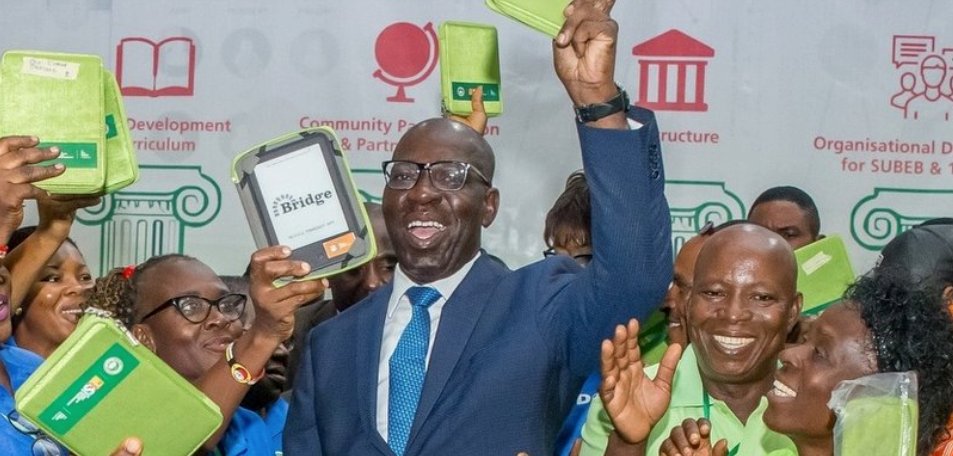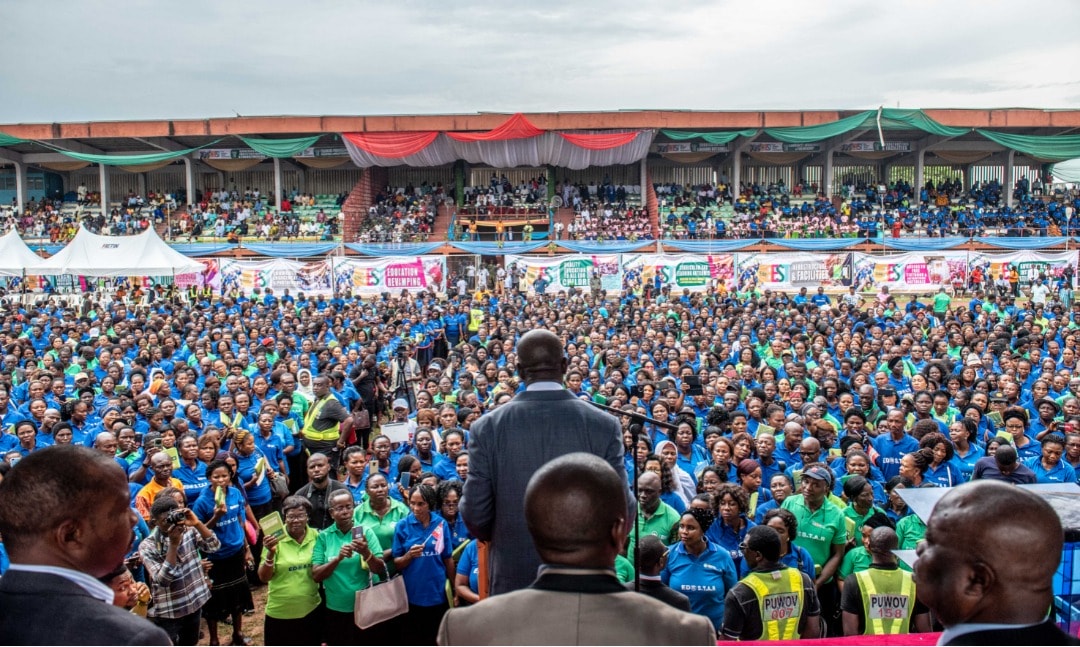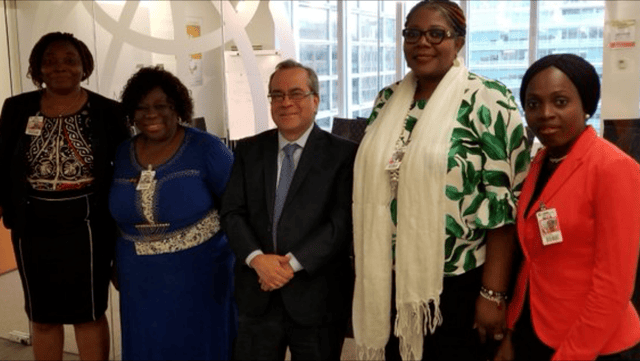All over the world, education is a key driver of national development and societal growth. Education and work in Sub-Saharan Africa will determine the livelihoods of nearly a billion people in the region and drive growth and development in generations to come.
According to the UN Department of Economic and Social Affairs’ World Population Prospects 2012 report, the solution to Africa’s education has to be scalable in order to address the problem awaiting the continent by 2050: that Africa will have the fastest growing workforce and numbers of school age children. Nigeria, being the most populous country in Africa, will contribute significantly to these numbers, hence the need to build a nation with an educated and skilled workforce that is stable, prosperous, and competitive.
Although education serves as the catalyst, teachers are the people who set the tone for society’s growth and development. Teachers will impact on the quality of education in Africa; the ability to train and support them with technology will determine the future of the children and continent.

In the photo: Edo State Governor Obaseki celebrating the Bridge Teacher Guides that underpins EdoBEST teacher training and classroom technology Photo credit: Bridge
Consequently, the Governor of Edo State, Godwin Obaseki, and the State’s Universal Basic Education Board (SUBEB) invested in reforming the basic education sector as a prerequisite of achieving sustainable growth, identifying technology as the key driver within the reform process. The result of the investment is the Edo Basic Education Sector Transformation (EdoBEST) initiative. Within just six months of its official launch, it has unveiled 7,000 Government-trained teachers and is set to radically impact the lives of 150,000 Edo children. Ultimately, it will reach 15,000 across 1,500 public schools, impacting 300,000 children.
EdoBEST is the flagship initiative of the Edo State government, aiming to transform the public education system and learning outcomes in Edo. It is a comprehensive programme to develop State education across five pillars of work: governance, teacher training and development, community partnerships, infrastructure, and the local education board. Leading technology-based education provider, Bridge International Academies was brought in as a technical partner with the Government to support teacher training and development, helping to boost the capability of all Edo government teachers.
Governor Obaseki explained that: “In Edo State, we have identified the critical role of teachers in our growth plan and this informed our decision to birth the Edo State Basic Education Sector Transformation (Edo-BEST) programme that has kick-started a series of reforms in the education sector.

In the photo: Edo State Governor Obaseki, at the graduation of 7,000 government public school teachers into the EdoBEST programme Photo credit: Bridge
“The Edo-BEST programme is developing a pool of highly-skilled teaching workforce for the state, by training, supporting and motivating Edo State teachers to succeed in the classroom of tomorrow; enhance the Edo State Basic Education curriculum thereby empowering children to compete effectively in the world of work.”
The programme has started leapfrogging the basic education delivery systems by leveraging technology in education provision, gathering and utilising accurate and timely data to drive policy and planning decisions. Governor Obaseki said:
“Every teacher wants to teach and children desire to learn, which is why our ability to provide an enabling environment for learning is key. Technology can be used to address delivering the learning outcomes required in today’s workforce and used to support teachers to accelerate teaching and learning at scale to reach many more children.”

In the photo: At a USAID conference this month (Nov) in Washington DC, US talking about EdoBEST: (Middle) Jamie Saavedra head of Education at the World Bank with (L) Bridge’s Adesuwa Ifedi, EdoBest Teacher Mabel Omionawele, Dr. Joan Oviawe Chairman of Edo SUBEB and; EdoBEST teacher Vivian Iguisi Photo credit: Bridge
The approach taken by Bridge in Nigeria has been validated by a new Department for International Development (DFID) report focussing elsewhere in Nigeria, Lagos. The report compared public schools, low cost schools and Bridge. It identified a landmark finding, demonstrating that the Bridge schools, parents’ income and education was not correlated to children’s learning outcomes. These findings are remarkable, as they undermine decades of research that suggests a child’s background matters more than their school when it comes to learning. The report also found that Bridge teachers have the best relationships with their pupils; and that Bridge schools are managed more effectively. It builds on the preponderance of evidence demonstrating that the methods used and support provided by Bridge to teachers and students lead to higher learning than the alternative. The DFID study in Nigeria shows significant promise for the learning outcomes of the 300, 000 children that will be impacted by EdoBEST.
Related Articles: ‘WHY WEAKER US TEACHERS’ UNIONS ARE GOOD FOR AFRICA’ by Morrison Rwakakamba
‘TRANSFORMING UNIVERSITY EDUCATION’ by Dr. John Kennelly
At the October World Bank meetings in Bali, IFC CEO Philippe Le Houérou said: “We owe it to the kids, to the next generation, to try new things. There’s no way the public purse can deal with this so you have to include private finance, that is what we’re trying to do. We need to be imaginative and find new and more creative public-private solutions … the private sector is becoming more responsible, and in many countries the governments are seeing the potential of working with the private sector.”
The investment in human capital is a critical step towards boosting inclusive growth and initiatives that would in the long run build a nation where an educated and skilled workforce that is stable, prosperous and competitive, such as that established by EdoBEST, is welcome.
Follow Bridge Nigeria on Twitter: @Bridge_Nigeria








